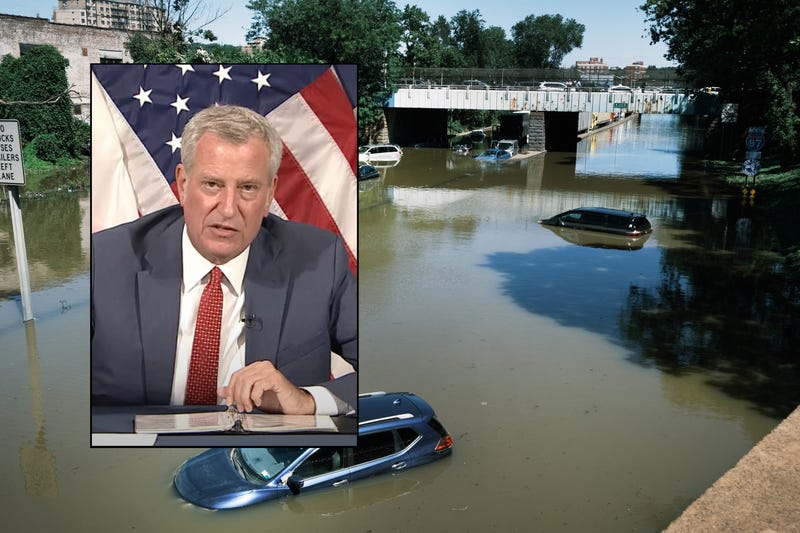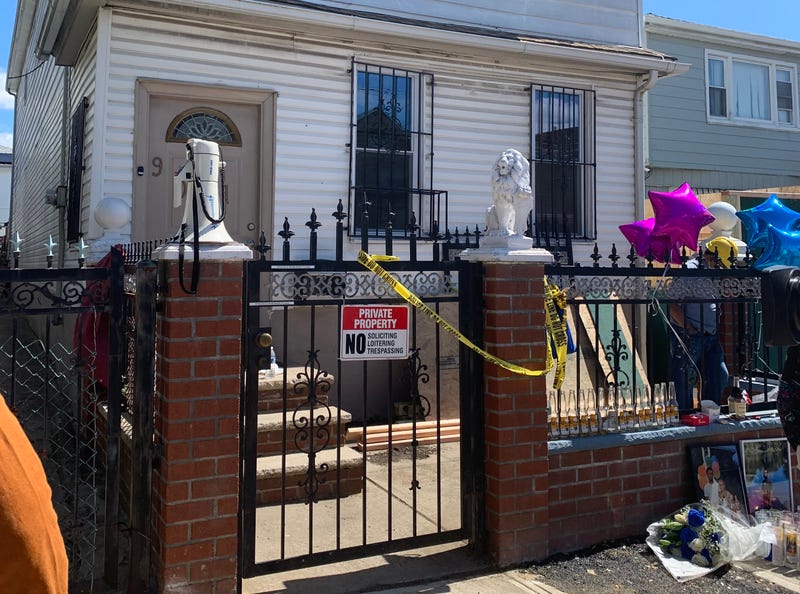NEW YORK (WCBS 880) – Mayor Bill de Blasio announced a new plan Friday to respond to extreme rain in the wake of Ida, which brought record flooding to New York City and left at least 13 people dead, most of them in basement apartments, days after Henri battered the region.
After two major storms in as many weeks, the mayor outlined three parts of his NYC Climate-Driven Rain Response, including more warnings and travel bans, evacuations for basement apartments and a 30-day Extreme Weather Task Force.

De Blasio said “we have to change everything” and “look at a series of much bigger changes” in response to the threat of extreme weather from climate change.
“We’re going to, in particular, focus on a different kind of warning, a much more severe kind of warning and a much more severe set of actions, very physical actions, that bluntly will be a jolt to people and a shock to people that we are even talking about these things,” the mayor said. “But we have learned that we need to introduce these into the equation.”
De Blasio said that the city may have to use travel bans—normally implemented for blizzards—much more frequently in response to warnings like the unprecedented Flash Flood Emergency issued by the National Weather Service for the city on Wednesday night. Once a travel ban is activated, people would have to clear streets and subways immediately.
The mayor also said more intensive efforts must be undertaken in advance of storms to clear drains and sewers in a system that wasn’t built to handle the amount of rainfall seen during Ida.

The response plan will also entail warning people in basement apartments about the vulnerabilities they face in extreme rain events and telling them they may have to evacuate their homes. The warnings will include cell phone alerts and messages, de Blasio said.
The majority of the 13 fatalities in the city from Ida were people who drowned in flooded basements.
The mayor said door-to-door evacuations will be a necessary tool that can be activated for people living in basement apartments.
“It’s not just saying to people, ‘You have to get out of your apartment.’ It’s going door to door with our first responders and other city agencies to get people out,” de Blasio said.

The mayor said that evacuations were normally used for homes along the coasts, but “now we understand there has to be a different kind of evacuation, for folks in basement apartments and some other areas of the city as well.”
“We hope, of course, with tools like evacuations and travel bans to not have to use them ultimately, but by telling them it’s a real possibility and by putting the structure in place, we’re both going to prepare people but also have a tool we can use rapidly if we get a report of this kind of escalation coming,” the mayor said. “And we're going to have to assume the escalation.”
De Blasio said he’s also setting up a 30-day Extreme Weather Response Task Force that will put together a new set of protocols and policies by Climate Week on Sept. 20 “that makes clear, tragically, that these extreme incidents are the new normal.”
The task force will include government officials from all areas consulting with outside experts to work on new tools and responses, as well as long-term policies for the years to come.
“We have to assume the worst in a way we never had before,” de Blasio said. “That storms will move faster, that they will be much more severe, that they will be much more sudden, that they will set records regularly.”



